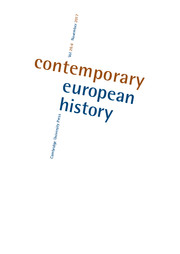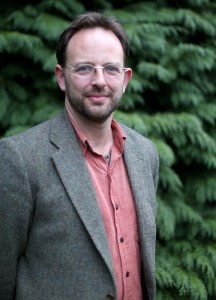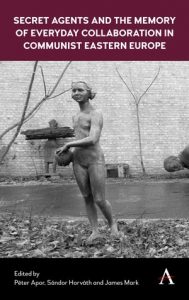Entangled Transitions Special Issue in Contemporary European History
Posted on 22 November, 2017 in1989 after 1989 Cold War Communism Human Rights Hungary

 As a result of our successful conference on Entangled Transitions, the Contemporary European History journal has published a special issue (Volume 26, Issue 4, November 2017) featuring a number of presented papers.
As a result of our successful conference on Entangled Transitions, the Contemporary European History journal has published a special issue (Volume 26, Issue 4, November 2017) featuring a number of presented papers.
It features an introductory piece written by Professor James Mark, Kim Christieans and Jose Faraldo on Entangled Transitions: Eastern and Southern European Convergence or Alternative Europes? 1960s–2000s as well as The Spanish Analogy’: Imagining the Future in State Socialist Hungary, 1948–1989 written by Professor James Mark.
Other articles include:
- ‘Communists are no Beasts’: European Solidarity Campaigns on Behalf of Democracy and Human Rights in Greece and East–West Détente in the 1960s and Early 1970s
By Kim Christiaens - Entangled Eurocommunism: Santiago Carrillo, the Spanish Communist Party and the Eastern Bloc during the Spanish Transition to Democracy, 1968–1982
By Jose M. Faraldo - From Enemies to Allies? Portugal’s Carnation Revolution and Czechoslovakia, 1968–1989
By Pavel Szobi - Tourism and Europe’s Shifting Periphery: Post-Franco Spain and Post-Socialist Bulgaria
By Max Holleran
→ The Entangled Transitions Special Issue can be read online via Cambridge University Press Cambridge Core
Secret Agents and the Memory of Everyday Collaboration in Communist Eastern Europe
Posted on 17 October, 2017 in1989 Area Studies Communism Eastern Europe End of Yugoslavia GDR Hungary Memory Post Socialism Rethinking 1989 Romania

 Professor James Mark’s co-edited volume Secret Agents and the Memory of Everyday Collaboration in Communist Eastern Europe is now available through Anthem Press.
Professor James Mark’s co-edited volume Secret Agents and the Memory of Everyday Collaboration in Communist Eastern Europe is now available through Anthem Press.
This collection of essays addresses institutions that develop the concept of collaboration, and examines the function, social representation and history of secret police archives and institutes of national memory that create these histories of collaboration. The essays provide a comparative account of collaboration/participation across differing categories of collaborators and different social milieux throughout East-Central Europe. They also demonstrate how secret police files can be used to produce more subtle social and cultural histories of the socialist dictatorships. By interrogating the ways in which post-socialist cultures produce the idea of, and knowledge about, “collaborators,” the contributing authors provide a nuanced historical conception of “collaboration,” expanding the concept toward broader frameworks of cooperation and political participation to facilitate a better understanding of Eastern European communist regimes.
 Edited by Péter Apor, Sándor Horváth and James Mark, the essays are framed into three parts – Institutes, Secret Lives and Collaborating Communities and include topics such as the Stasi Records of the former GDR; memory in Latvia, Slovak and the Czech Republics; Tito and intellectuals 1945-80; entangled stories with the Former Securitate; Regional-level Party Activists in Slovakia and priest collaboration in Slovak Catholic memory after 1989.
Edited by Péter Apor, Sándor Horváth and James Mark, the essays are framed into three parts – Institutes, Secret Lives and Collaborating Communities and include topics such as the Stasi Records of the former GDR; memory in Latvia, Slovak and the Czech Republics; Tito and intellectuals 1945-80; entangled stories with the Former Securitate; Regional-level Party Activists in Slovakia and priest collaboration in Slovak Catholic memory after 1989.
“This excellent volume marks a genuine breakthrough in our knowledge about the everyday lives of the people who made up the secret police, of their motivations and their experiences. It challenges binary visions of the past and powerfully highlights the complexity of the term ‘collaboration.’ Ultimately, it makes a case for the human factor in the history of the repressive state.”
Ulf Brunnbauer, Director, Leibniz Institute for East and Southeast European Studies, Regensburg, Germany
Table of Contents
Frameworks: Collaboration, Cooperation, Political Participation in the Communist Regimes
(The Editors)
Part 1: Institutes
Chapter 1: A Dissident Legacy, The ‘Federal Commissioner for the Stasi Records of the Former GDR’ (BStU) in United Germany
(Bernd Schaefer)
Chapter 2: In Black and White? The Discourse on Polish Post-War Society by the Institute of Polish Remembrance
(Barbara Klich-Kluczewska)
Chapter 3: The Exempt Nation: Memory of Collaborationism in Contemporary Latvia
(Leva Zake)
Chapter 4: Institutes of Memory in the Slovak and Czech Republics – What Kind of Memory?
(Martin Kovanič)
Chapter 5: Closing the Past – Opening the Future. Hungarian Victims and Perpetrators of the Communist Regime
(Péter Apor and Sándor Horváth)
Chapter 6: To Collaborate and to Punish. Democracy and Transitional Justice in Romania
(Florin Abraham)
Part 2: Secret Lives
Chapter 7: ‘Resistance through Culture’ or ‘Connivance through Culture.’ Difficulties of Interpretation; Nuances, Errors, and Manipulations
(Gabriel Andreescu)
Chapter 8: Intellectuals between Collaboration and Independence. Politics and Everyday Life in the Prague Faculty of Arts in Late Socialism
(Matěj Spurný)
Chapter 9: Tito and Intellectuals – Collaboration and Support, 1945–1980
(Josip Mihaljević)
Chapter 10: Spy in the Underground. Polish Samizdat Stories
(Paweł Sowiński)
Chapter 11: Entangled Stories. On the Meaning of Collaboration with the Former Securitate
(Cristina Petrescu)
Part 3: Collaborating Communities
Chapter 12: Finding the Ways (around). Regional-level Party Activists in Slovakia
(Marína Zavacká)
Chapter 13: ‘But Who is the Party?’ History and Historiography in the Hungarian Communist Party
(Tamás Kende)
Chapter 14: Forgetting ‘Judas’. Priest Collaboration in Slovak Catholic Memory after 1989
(Agáta Drelová)
Chapter 15: Informing as Life-Style. Unofficial Collaborators of the Hungarian and the East-German State Security (Stasi) Working in the Tourism Sector
(Krisztina Slachta)
→ Order your copy through the Anthem Press website: Secret Agents and the Memory of Everyday Collaboration in Communist Eastern Europe
[Top]Global Circuits of Expertise and the Making of the Post-1945 World
Posted on 29 March, 2016 in1989 Cold War East Asia Eastern Europe Economy Hungary Post Socialism Rethinking 1989 Socialism

Interested in learning more about Professor James Mark’s research on Hungary, South Korea and economic exchange in the Late Cold War? Then why not come along to Global Circuits of Expertise and the Making of the Post-1945 World: Eastern European and Asian Perspectives in New York, 29 – 30 April 2016:
Location:
Weatherhead East Asian Institute
International Affairs Building, Room 918 – 420 West 118th Street, New York, New York 10027
Register:
https://www.eventbrite.com/e/global-circuits-of-expertise-and-the-making-of-the-post-1945-world-tickets-22426838277
This workshop aims to explore transfer and circulation of expert knowledge across socialist worlds in the post-1945 period of decolonization. The workshop brings together scholars with regional expertise, Eastern European and/or Asian, to seek commonalities between histories and historiographies that cut across regions, geopolitical blocs and continents.
Bringing these stories together, we will tell a story of expert circulation in the “socialist world.” These were regions where socialism was the dominant state ideology, where socialist parties were politically dominant, or where “progressive” export cultures played important roles. Yet we also wish to consider how experts from “socialist cultures” interacted globally, and were part of broader transnational debates over modernisation, political development, technology, and decolonization. Connections were made, for example, between Eastern Europe and India, as well as Socialist China and India, that defied Cold War blocs. Bringing scholars working across these regions, and on the place of these regions in a global perspective, will help provide important new insights into non-western contributions to various fields of knowledge in the wake of decolonisation.
This event is sponsored by the Weatherhead East Asian Institute, The Harriman Institute, and The Center for Science and Society at Columbia University, and the Arts and Humanities Research Council (UK)-funded research project “Socialism Goes Global”.
Workshop Programme

Friday, April 29
9:30 a.m. – 12:00 p.m.
Panel 1: Science and Decolonization
Chaired by Eugenia Lean, Columbia University
Session 1: The Eastern European Peasant in Nehru’s India: Transnational Debates on Rural Economies, 1930s-1960s
Malgorzata Mazurek, Columbia University
Session 2: Water Management and Transnational Expertise in 1950s China and India
Arunabh Ghosh, Harvard University
Session 3: Curing Ills with Socialist Medicine: China’s Medical Missions in Algeria, 1963-1973
Dongxin Zou, Columbia University
2:00 p.m. – 3:30 p.m.
Panel 2: Global Revolution: Circuits of Expertise and Techniques
Chaired by James Mark, Exeter University
Session 4: The Screen is Red: China and East Germany Make Films Together in 1950s
Quinn Slobodian, Wellesley College
Session 5: Between Work and Struggle: The Varieties of Bolshevik “Self-Criticism” in Maoist China
Chris Chang, Columbia University
3:45 p.m. – 5:00 p.m.
Panel 3: Politics of Exchange and Circulation
Chaired by Eugenia Lean, Columbia University
Session 6: Tending the Trees of Friendship, Breeding New Knowledge at Home: The Case of the Albanian Olive Tree in China
Sigrid Schmalzer, University of Massachusetts, Amherst
Session 7: Earthquakes, Disaster Governance, and Socialist China — an International Perspective
Fa-ti Fan, State University of New York, Binghamton
Saturday, April 30
9:30 a.m. – 12:00 p.m.
Panel 4: Late Socialist Reforms: Economics and Exchange
Chaired by Malgorzata Mazurek, Columbia University
Session 8: Entangled Electronics: Bulgarian Computers and the Developing World as a Space of Exchange, 1967-1990
Victor Petrov, Columbia University
Session 9: The Political-Economy of Détente: Interdependence, Technocratic Internationalism and Formation of Perestroika Political Economy
Yakov Feygin, University of Pennsylvania
Session 10: Between Eastern Europe and the ‘East Asian Tigers’: Hungary, South Korea and Economic Exchange in the Late Cold War
James Mark, Exeter University
2:00 p.m. – 4:00 p.m.
Roundtable
Paul Betts, Oxford University
Eugenia Lean, Columbia University
Elidor Mehilli, Hunter College
Adam Tooze, Columbia University
Link to Conference Poster
[Top]



